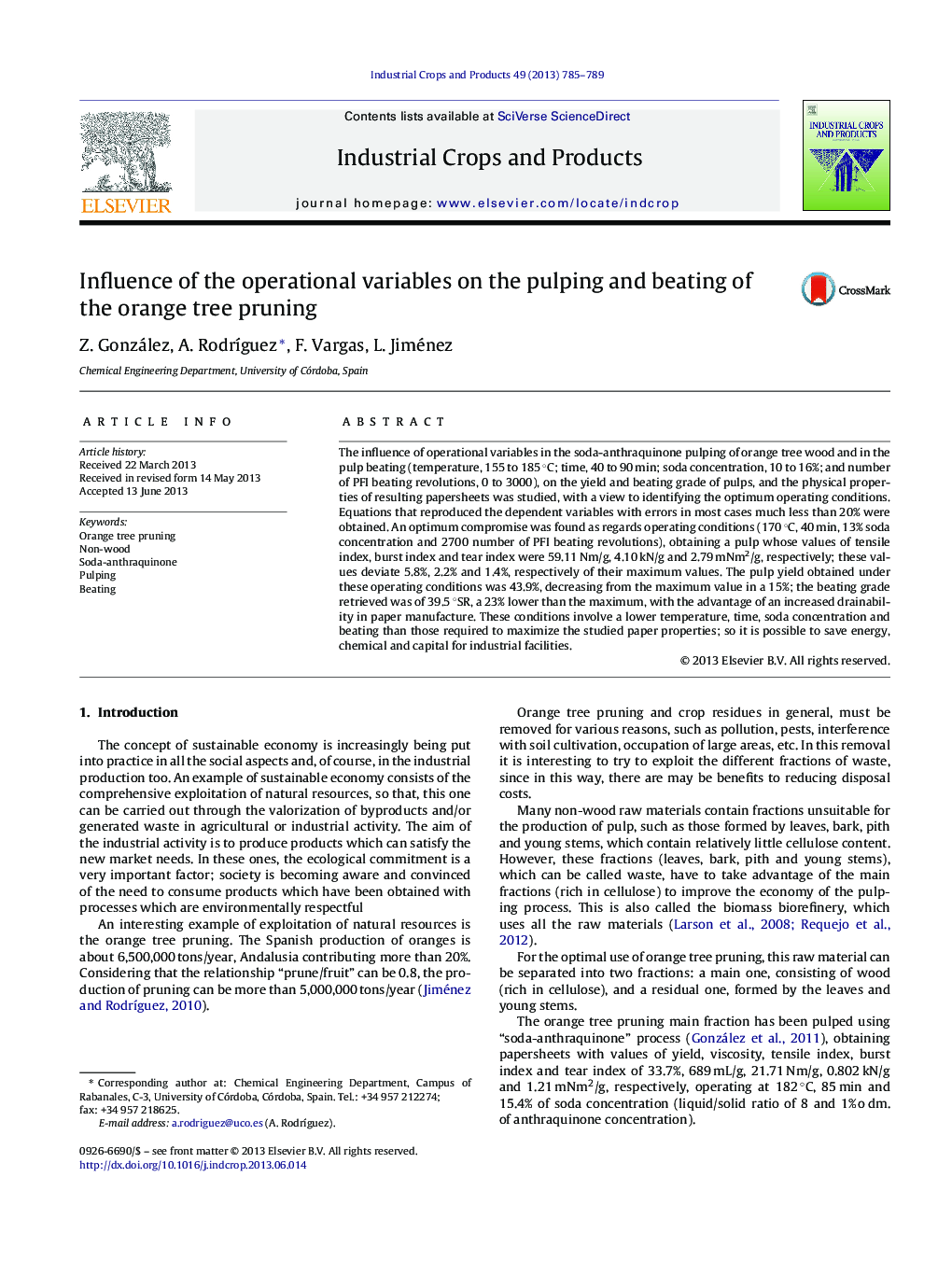| Article ID | Journal | Published Year | Pages | File Type |
|---|---|---|---|---|
| 6377457 | Industrial Crops and Products | 2013 | 5 Pages |
Abstract
The influence of operational variables in the soda-anthraquinone pulping of orange tree wood and in the pulp beating (temperature, 155 to 185 °C; time, 40 to 90 min; soda concentration, 10 to 16%; and number of PFI beating revolutions, 0 to 3000), on the yield and beating grade of pulps, and the physical properties of resulting papersheets was studied, with a view to identifying the optimum operating conditions. Equations that reproduced the dependent variables with errors in most cases much less than 20% were obtained. An optimum compromise was found as regards operating conditions (170 °C, 40 min, 13% soda concentration and 2700 number of PFI beating revolutions), obtaining a pulp whose values of tensile index, burst index and tear index were 59.11 Nm/g, 4.10 kN/g and 2.79 mNm2/g, respectively; these values deviate 5.8%, 2.2% and 1.4%, respectively of their maximum values. The pulp yield obtained under these operating conditions was 43.9%, decreasing from the maximum value in a 15%; the beating grade retrieved was of 39.5 °SR, a 23% lower than the maximum, with the advantage of an increased drainability in paper manufacture. These conditions involve a lower temperature, time, soda concentration and beating than those required to maximize the studied paper properties; so it is possible to save energy, chemical and capital for industrial facilities.
Related Topics
Life Sciences
Agricultural and Biological Sciences
Agronomy and Crop Science
Authors
Z. González, A. RodrÃguez, F. Vargas, L. Jiménez,
